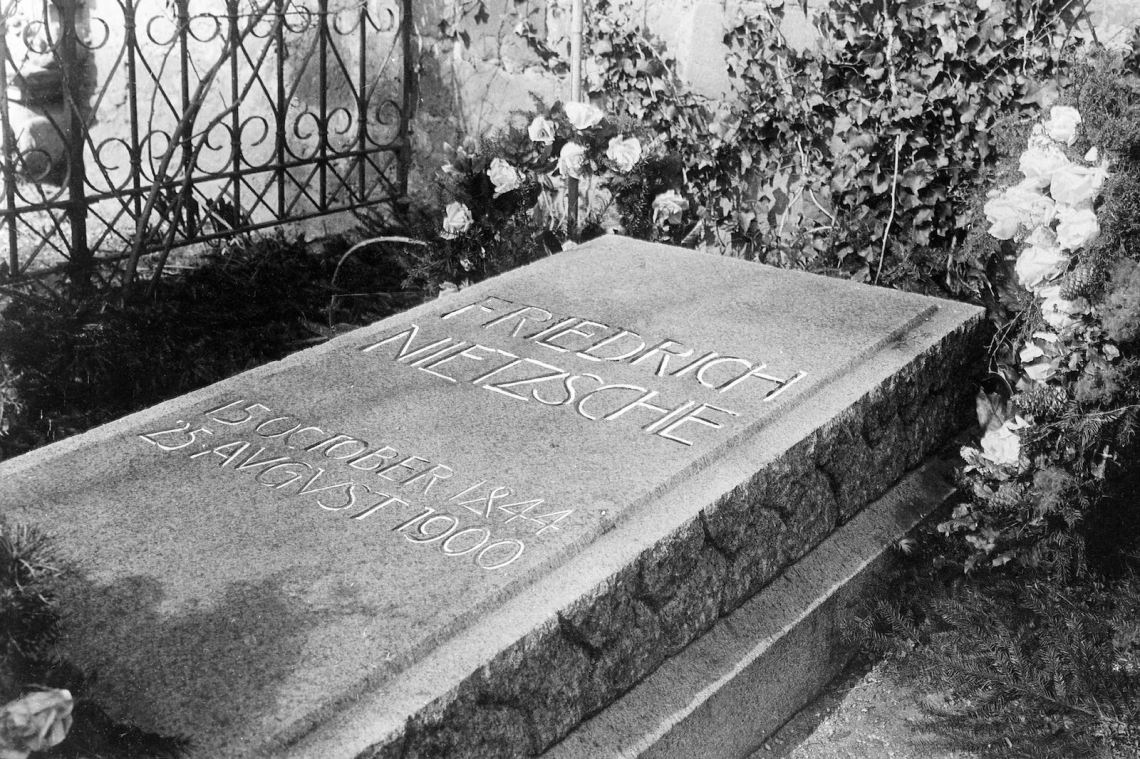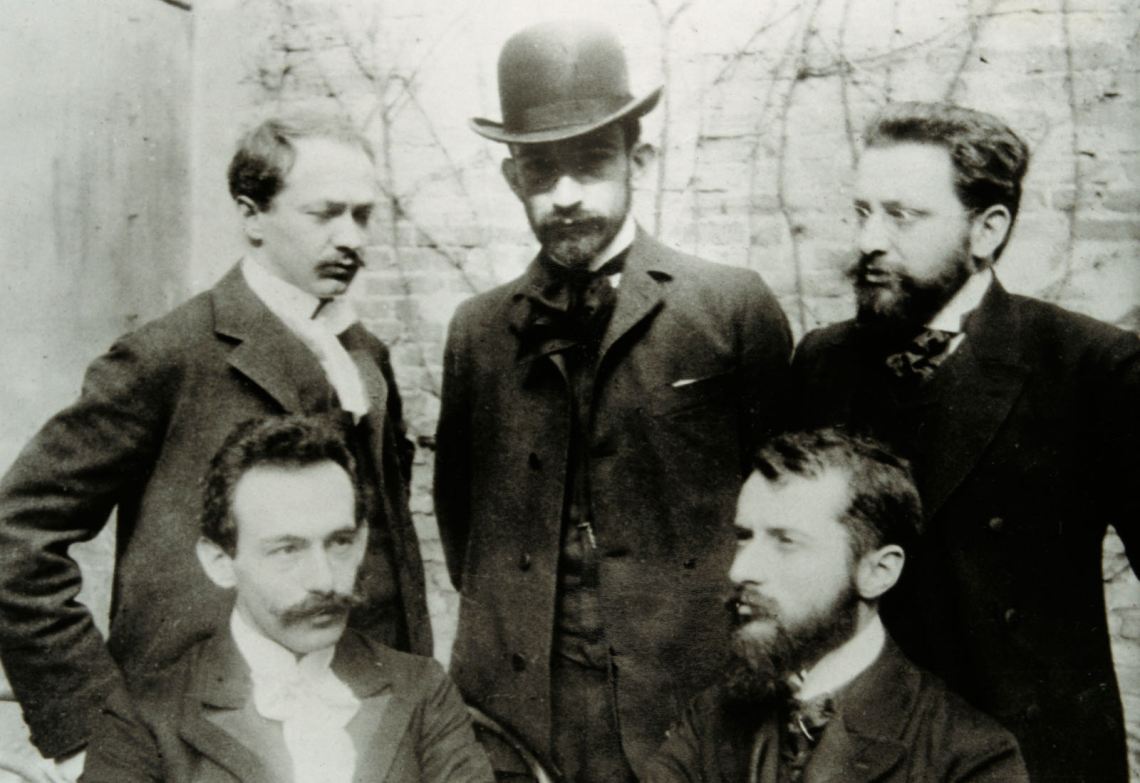At the time, in 1900, that Martin Buber, then a twenty-two-year-old university student in Zurich, wrote his brief eulogy for Friedrich Nietzsche, the German philosopher had spent the previous decade confined to an asylum and his family’s care because of his mental incapacity and had died in relative obscurity. Nietzsche’s earlier work was then largely unknown: a few studies and biographical memoirs had been published, but none of his books were familiar to more than a small cohort of enthusiasts.
Buber had become one of them as a teenager, embarking on an ultimately abandoned translation of Nietzsche’s Thus Spoke Zarathustra into his native Polish while he was still in high school. A gifted, multilingual polymath, Buber identified with Nietzsche’s critique of conventional disciplines and rote systems of thought. More than that, he valued Nietzsche’s conception of philosophy as creative rather than merely critical and found in it a call for a radical transvaluation of what he, with Nietzsche, regarded as the hollow ethos of European life and institutions.
Buber’s eulogy, written in German, was first published in a Berlin student organization’s journal called Die Kunst im Leben (“Art in Life”) in 1900, the year of Nietzsche’s death. It has been reprinted in the first volume (edited by Martin Treml) of Buber’s collected writings in German, Works, edited by Paul Mendes-Flohr and Bernd Witte. This is the first English translation based on that version.
Buber’s appraisal in this eulogy of Nietzsche’s idea of a “becoming God to whose development we can contribute” rather than a God we must revere and follow, remarkably pinpoints what would become one of the German philosopher’s most influential ideas. As Mendes-Flohr’s intellectual biography Martin Buber: A Life of Faith and Dissent notes, Buber would later qualify his youthful adoration of Nietzsche, especially the philosopher’s provocative declaration of the death of God. But Nietzsche remained a potent presence in Buber’s wide-ranging thought, including in his best-known publication, I and Thou (1923), which argues that human existence is fundamentally relational rather than individualistic. Throughout Buber’s prolific writings on Jewish mysticism, political philosophy, education, and culture, he drew on Nietzsche’s call for creative self-mastery as a means of resisting arbitrary authority.
Buber became a cultural Zionist advocating for a spiritual renewal of Judaism in the years following the publication of this encomium; later, he became a trenchant critic of political Zionism. In this evolution, too, Nietzsche’s influence is visible, underpinning Buber’s conception of a revolutionary and secular Jewish consciousness and existence that had been blocked by European nationalisms and anti-Semitism.
The first English-language study of Nietzsche did not appear until H. L. Mencken’s was published in 1907. Over the next century, Nietzsche’s work would come to occupy a place in the history of ideas rivaled only, perhaps, by Plato, Rousseau, and Marx. Notoriously, the Nazis appropriated Nietzsche for their catastrophic and criminal purposes. Subsequently, Walter Kaufmann’s 1950s editions and translations of Nietzsche’s work into American English sought to redeem him from the taint of being the “Nazi philosopher,” and made him more palatable to American readers by rendering him as an apostle of Emersonian individualism.
Ultimately, the political right has had no monopoly on Nietzsche’s ideas. Later generations of left-wing revolutionaries, particularly France’s soixante-huitards, have seized on them to support their critiques of state power and social hierarchy. Since then, Nietzsche’s thought has been extensively mined by feminists and poststructuralist thinkers.
Today, it might still strike us as incongruous, even disturbing, that a young Jewish student could fall for Nietzsche, given the Nazis’ exploitation of Nietzschean concepts such as the “superman” and “will to power,” and their genocide of European Jews a few decades later. The Nazis’ effort to destroy all of German-Jewish culture, of which Buber himself remained an avatar for his entire life, resulted in irremediable loss; and the insidious political uses to which Nietzsche’s ideas were put must still be held to account.
At the same time, Buber was by no means the only significant Jewish thinker on whom Nietzsche exerted considerable influence. And Buber’s lasting fascination with his work demonstrates that groundbreaking philosophical ideas are rarely conscripted into the service, exclusively, of just one political agenda. We might also credit Buber’s visionary text here with a foundational insight into the creative impulse in Nietzsche’s thought that, despite its sometime catastrophic appropriation, continues to make him “an emissary of life.”
A Word About Nietzsche and the Values of Life, by Martin Buber
There have always existed people who cannot be included in any classification or designated by a group name, because any naming does them violence: we sense that each name fails to express especially what is essential about them. Far too many spheres of life intersect in them, and they are the enunciation and dawn of far too many divergent premonitions and inklings to be locked in one conceptual chamber along many others. They are large and undefinable like life itself, whose apostles they are. They seem to announce a future form of development for the human species. In their essence, they exceed our language. In their longing, they exceed our powers. Friedrich Nietzsche is to be counted among them.
Is he a “philosopher”? He did not create a uniformly constructed system of thought. Is he an artist? He did not create shaped objects. Is he a psychologist? His deepest knowledge is of the future of souls. Is he a poet? Only if and when we think of poets as they are thought to have existed once: “Seers, who tell us something about what might possibly happen,” who “let us feel in advance something of the virtues of the future.” Is he the founder of a new community? Many rise upon hearing his name, but they do not come together since everyone finds a different and only a single star in this blessed night sky as his own, and everyone does not reach general insights of the kind that unite people but instead finds his most authentic strength activated. His deepest intention was not to communicate and propagate his own thoughts, but instead to elicit and transform into moving energy the most personal and productive traits and most hidden treasures of everyone’s individuality. He called the innermost purpose of his work the increase of general fertility.
And yet, he is not one of the advocates, the Socratic individuals, whose very best dimensions are revealed only in the descendants of their thought. He is a creator. Never before in our age have such rich and full words been coined for the most painful secrets and the wildest dreams of thinking people. Ideals that previously had only been able to live in the thin, refined air of the highest mountaintops have entered through him into human interactions and into man’s impoverished language, born of bodily and primitive needs, where they have begun to shine only more wonderfully. Just as a sculptor places his hand, trembling with a certain order to form, on the soft, shapeless sculpting clay, this emissary of life placed his blessed and gifted hand on the longing, searching, and struggling of our time, where it was shaped into something visible.
For he was an emissary of life. An apostle, or perhaps only a baptizer and herald. He did not proclaim his own existence but his longing. His critics have said this often enough (he himself frequently expresses it: “Where our deficiencies are, there our enthusiasm also unfolds”). This golden strength of his desire, which created something real out of what he was not, makes him only more charming for us. The fact that the sick person taught a new form of health (“a stronger, wittier, tougher, bolder, funnier one”), that the quiet thought-poet given over to reflecting on the innermost things, glorified the will to power and the rebirth of the life of the instincts, this seems to us the crystallization of our own tragedy. We learn to love him like a near and far friend in distress, who, like us, needs bread and medicine, and who, like the creative friend, is always ready to give away a completed world.
He arrived in an age of smallness. The relation of people to the world had become small, pathetically small, and man’s relation to himself and to his own becoming had become rotten to its deepest core. He fights with the century’s finest and most noble blade against the reigning metaphysics and morality, because he saw them as tools and symptoms of a life in decline. He uncovered the weak mendacity of our values and truths. But the tip of his raised sword already glowed purple in the sunrise. He found fresh and fertile seeds in ancient royal tombs; from dead cultures he dragged into the light the elements of new formations. In the confused and infertile business of the present, he gathered what is real and capable of procreating. Before our eyes, he erected the statue of the heroic individual who creates himself and beyond himself. In the place of a thin and weak-loined altruism, he placed the egoism of his own development and generous virtue; in the place of pity, the capacity to rejoice alongside and act in concert with others. To the acolytes of the afterworld, he taught the lofty meaning of the earth and of the human body. He confronted the ideals of a comfortable and painless life with a life amid storms and dangers, whose powerful beauty is only intensified by pain. Instead of the happiness of the greatest number, he taught that the purpose of humanity is the production of great men and great works. He presented a great antagonist to the God of the world’s beginning: the becoming God to whose development we can contribute, the hoped-for result of future evolutions.
Advertisement
When he departed, life had become greater and more worthy of living.



